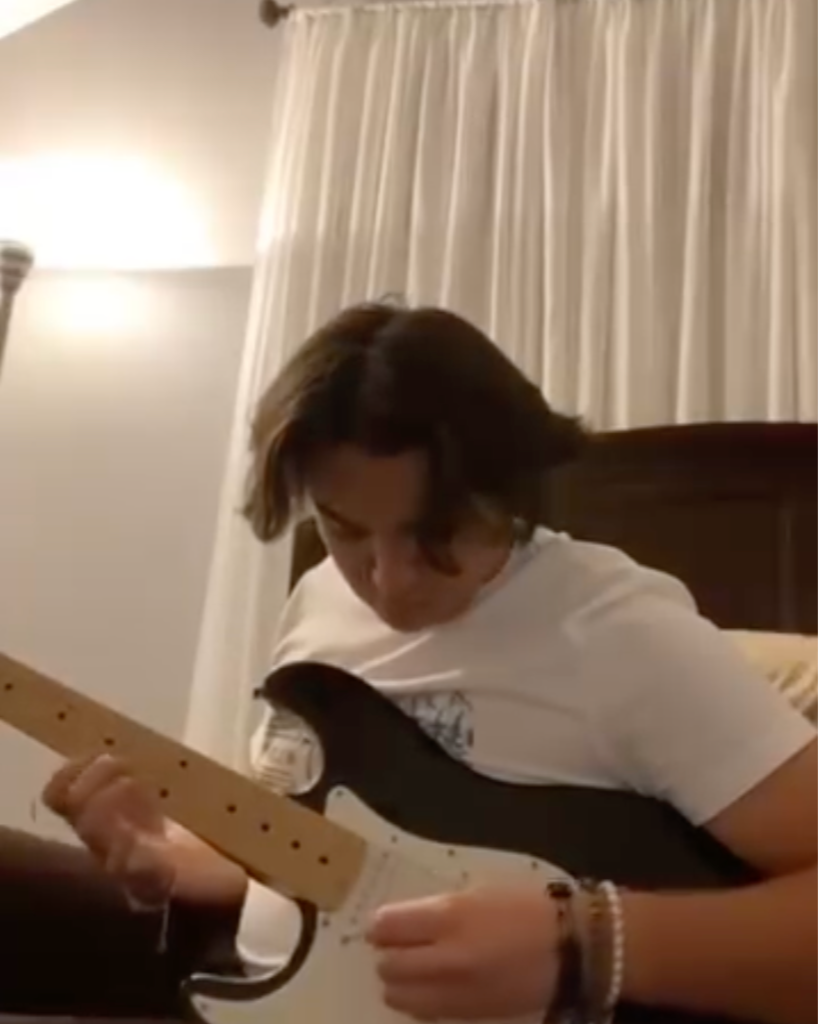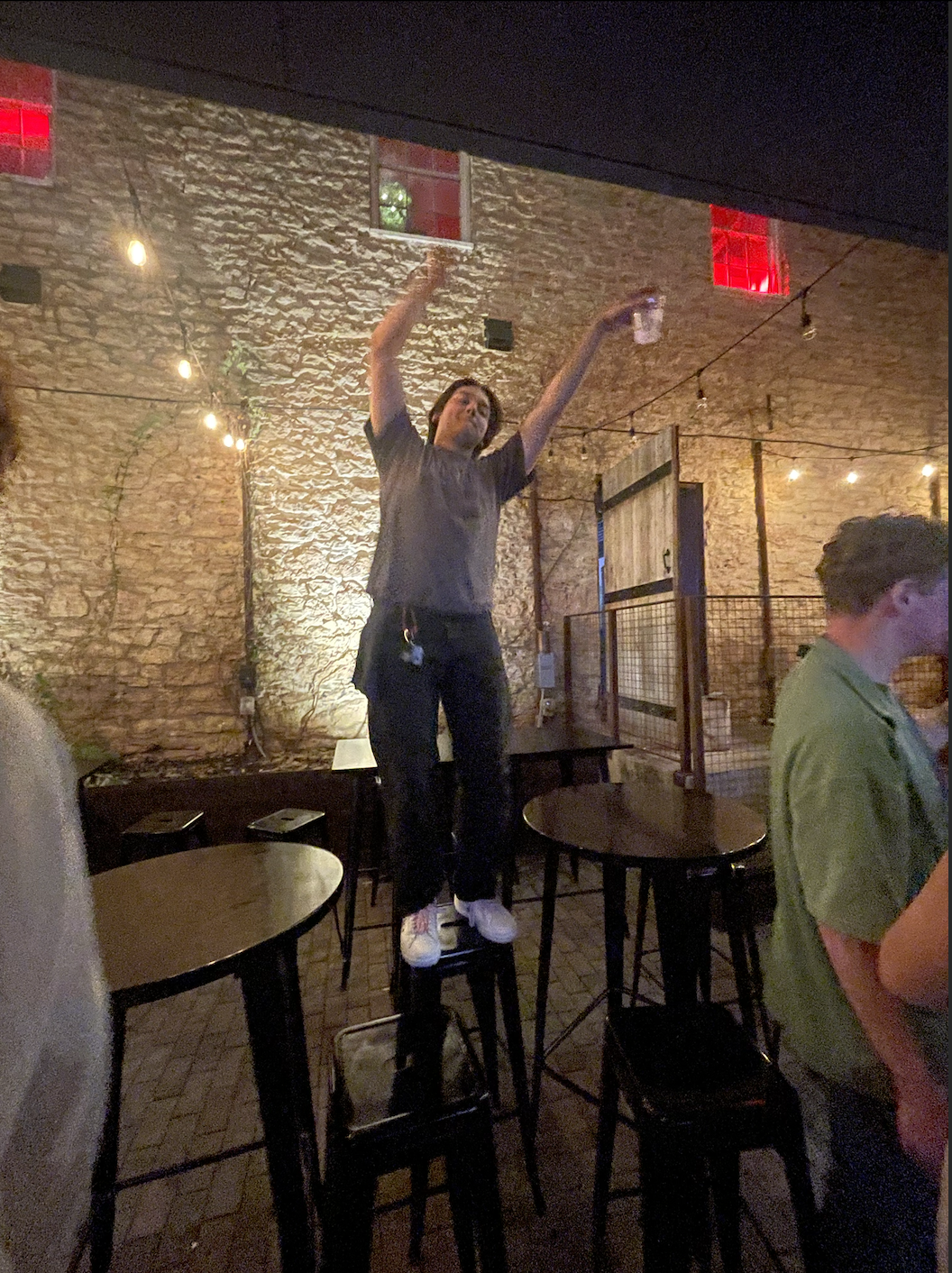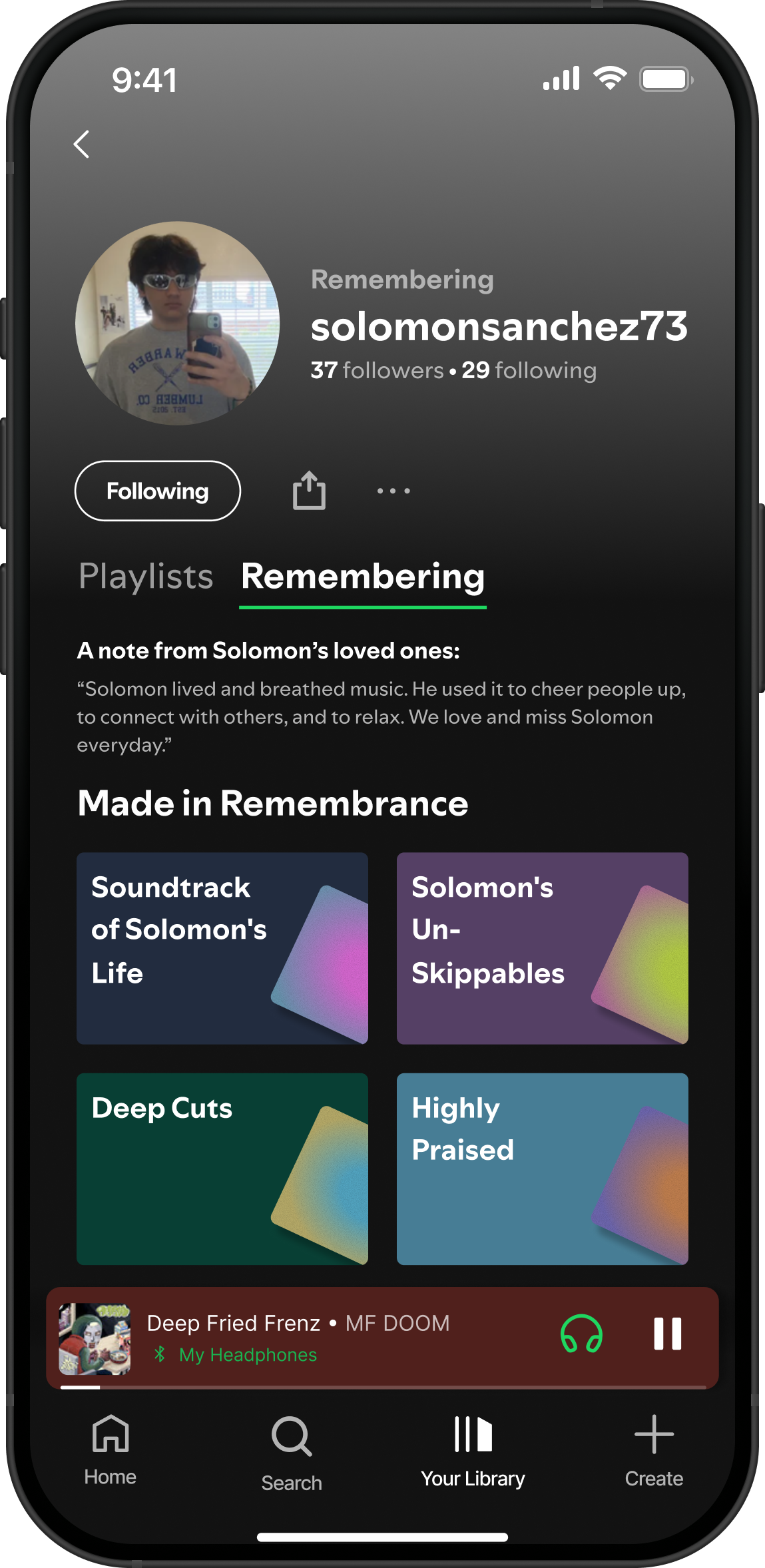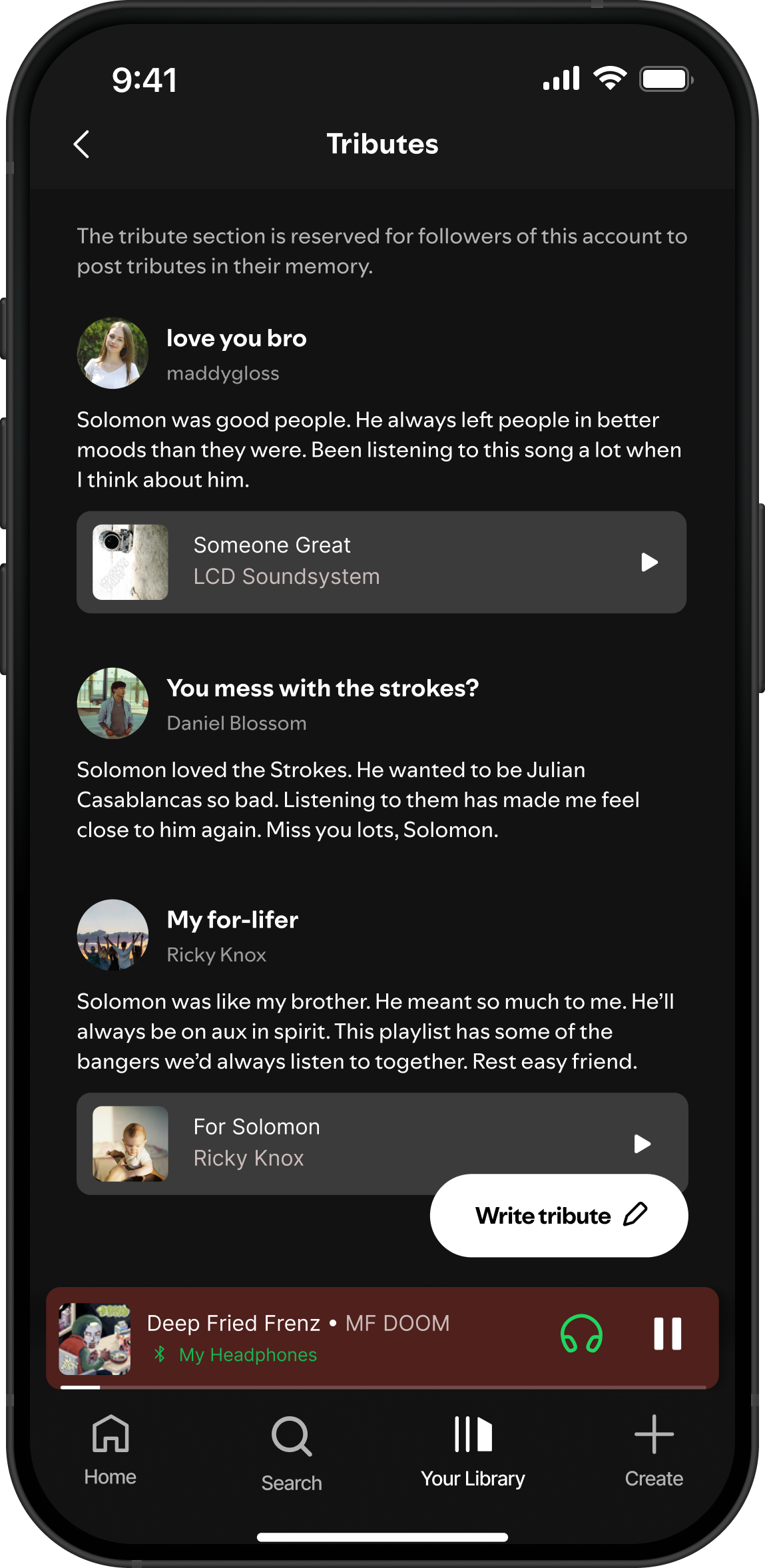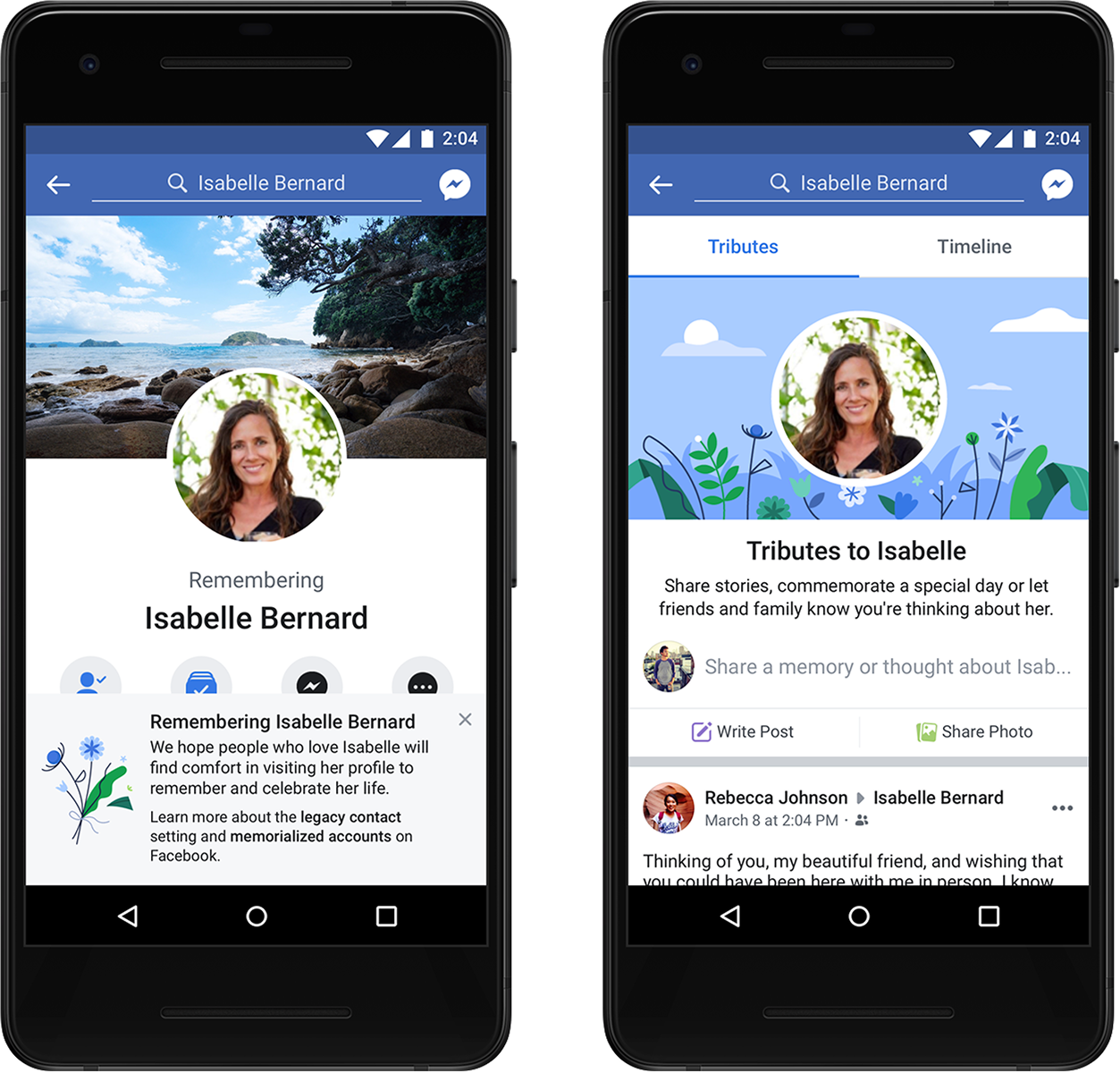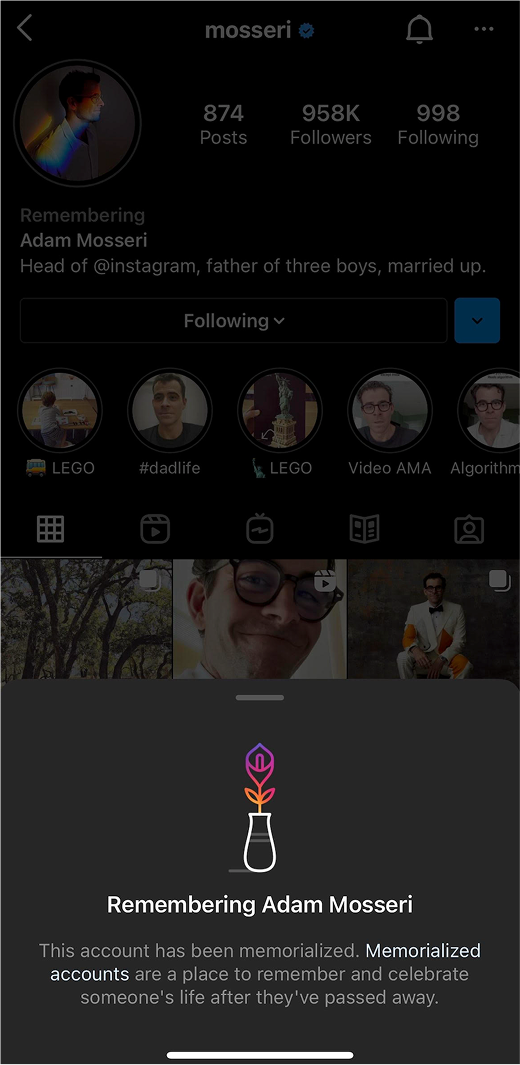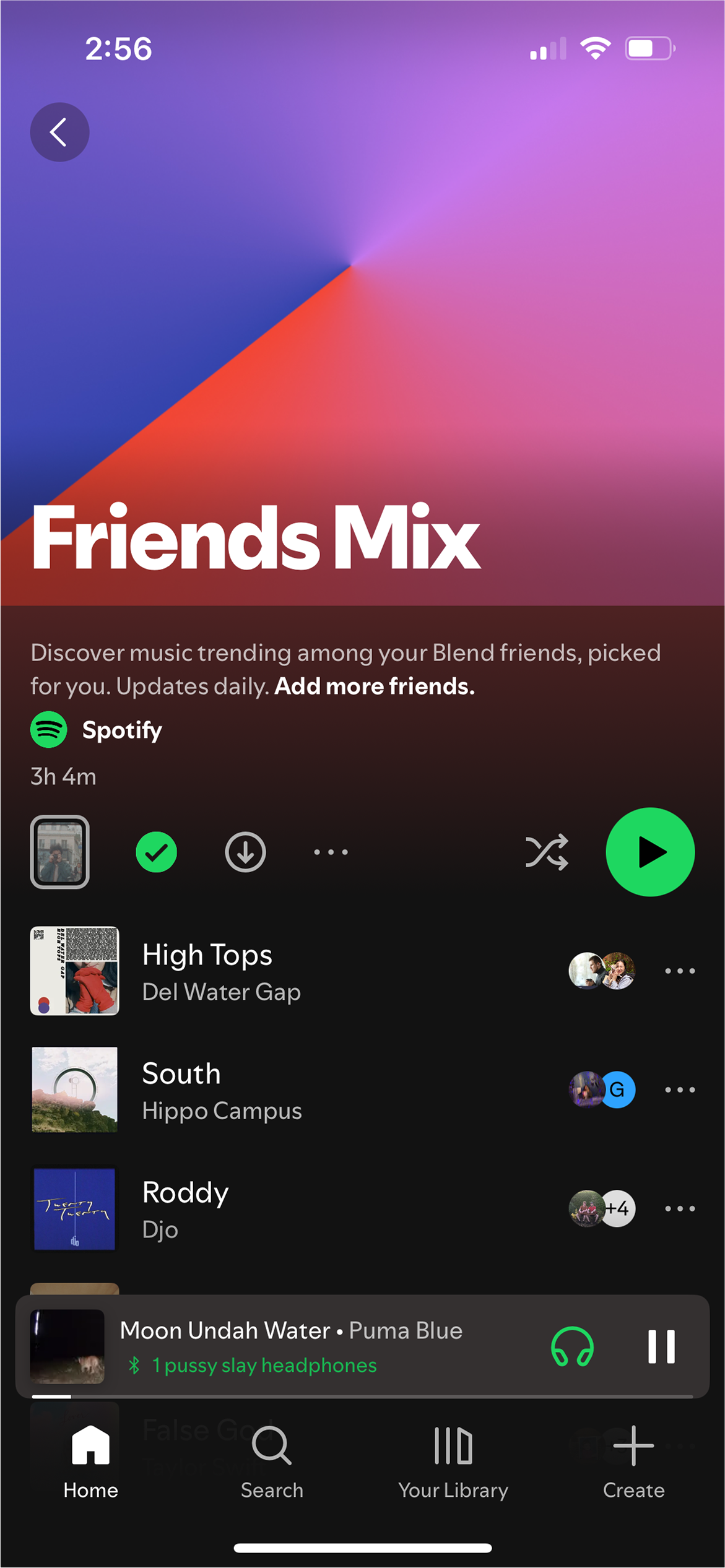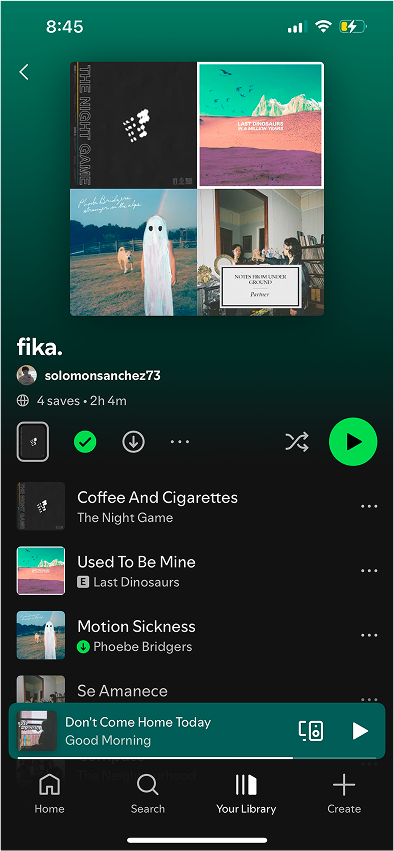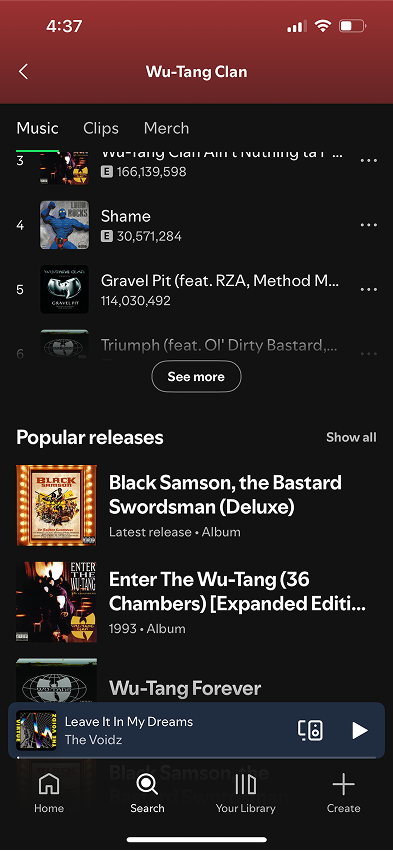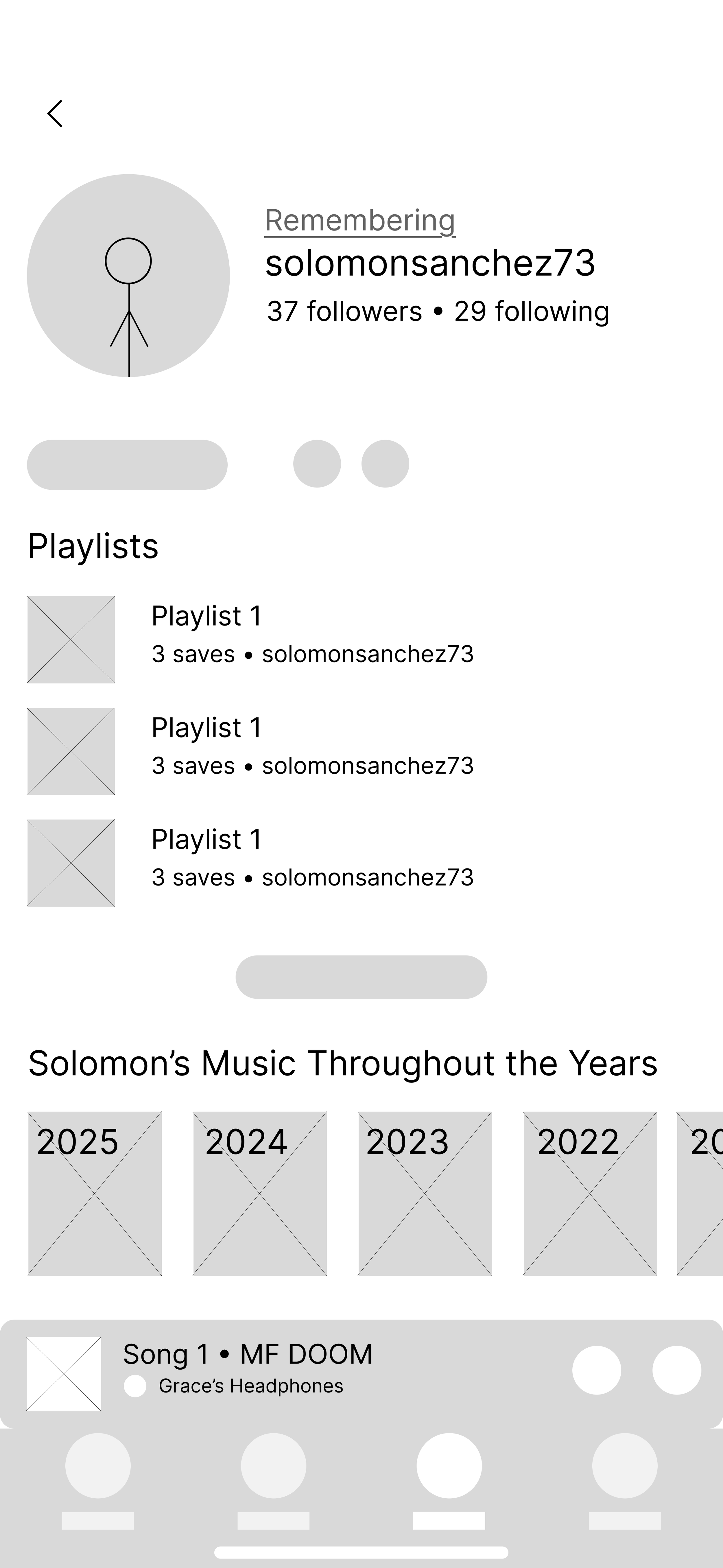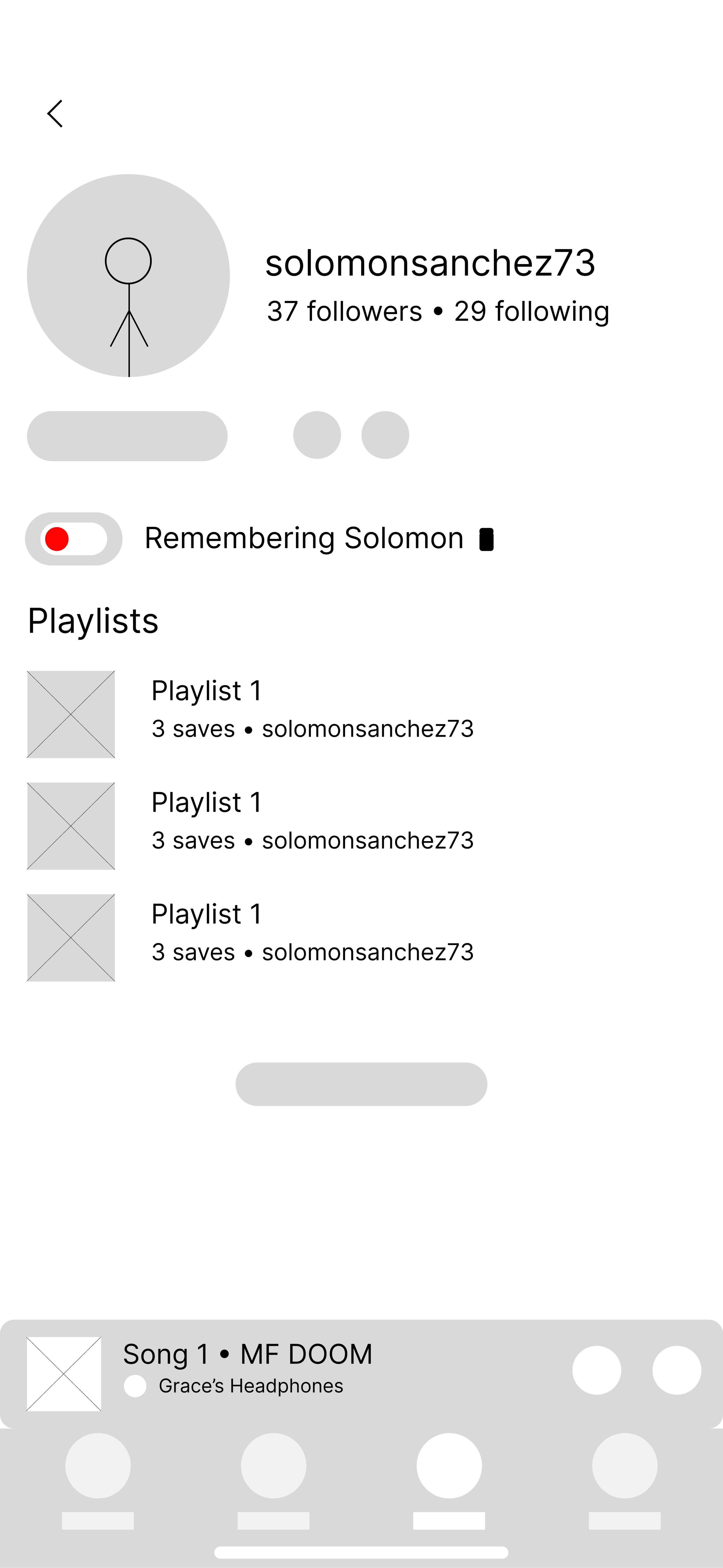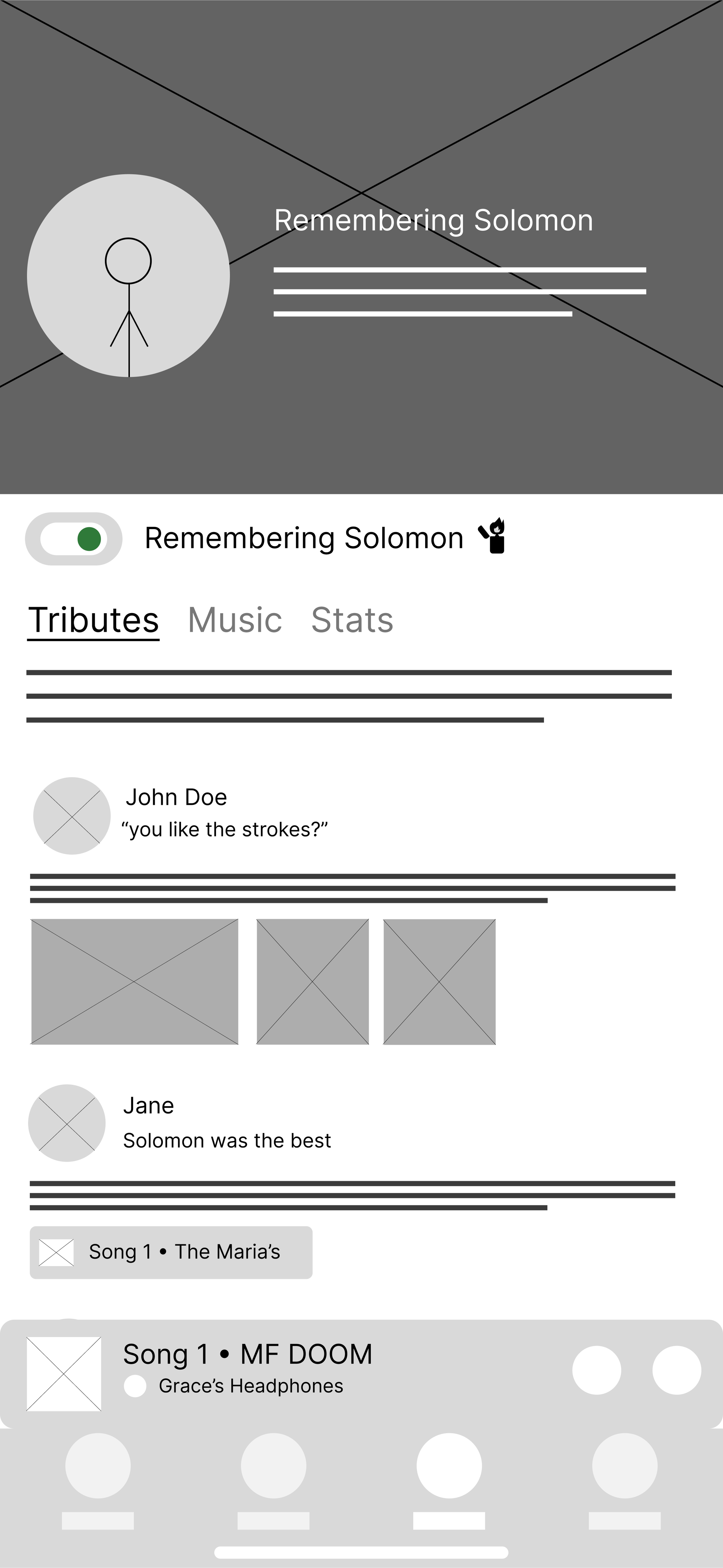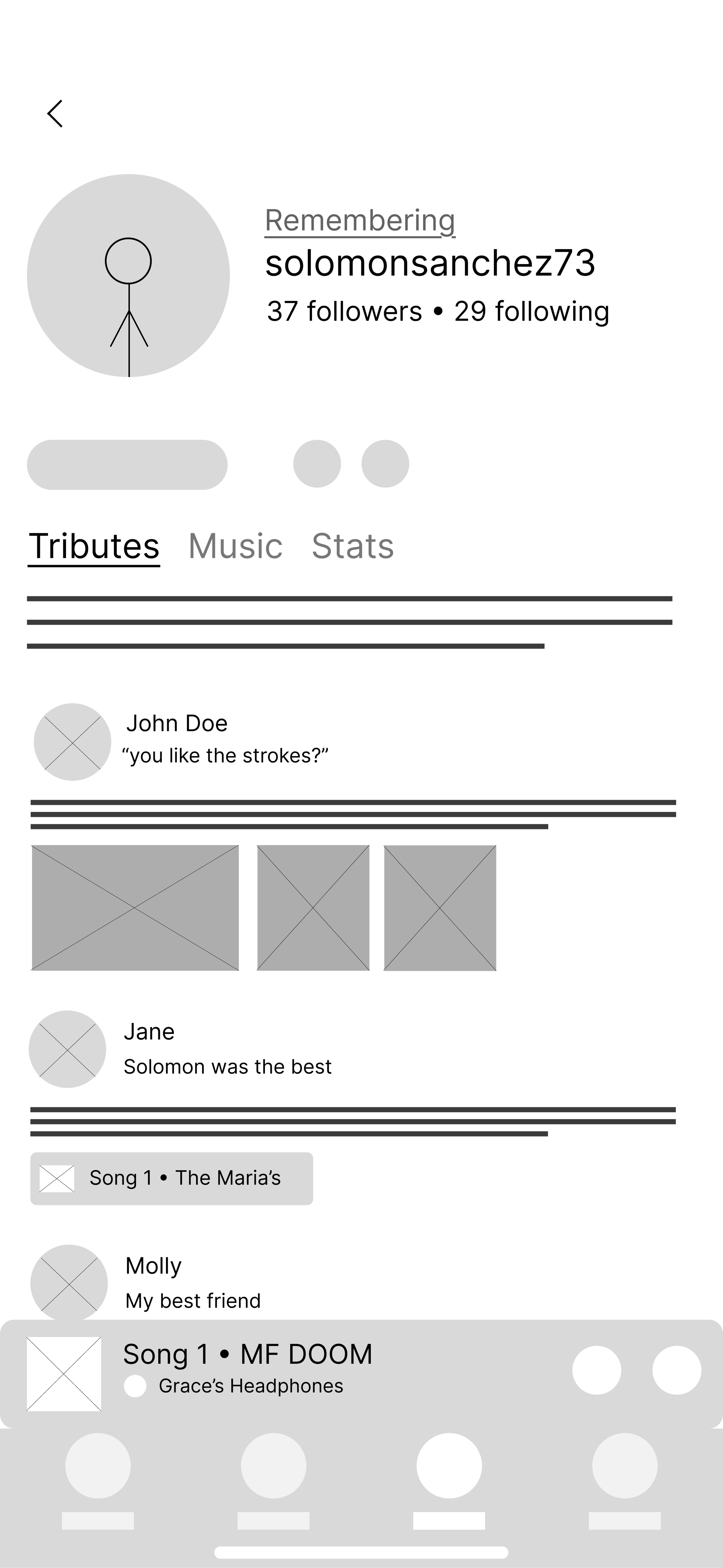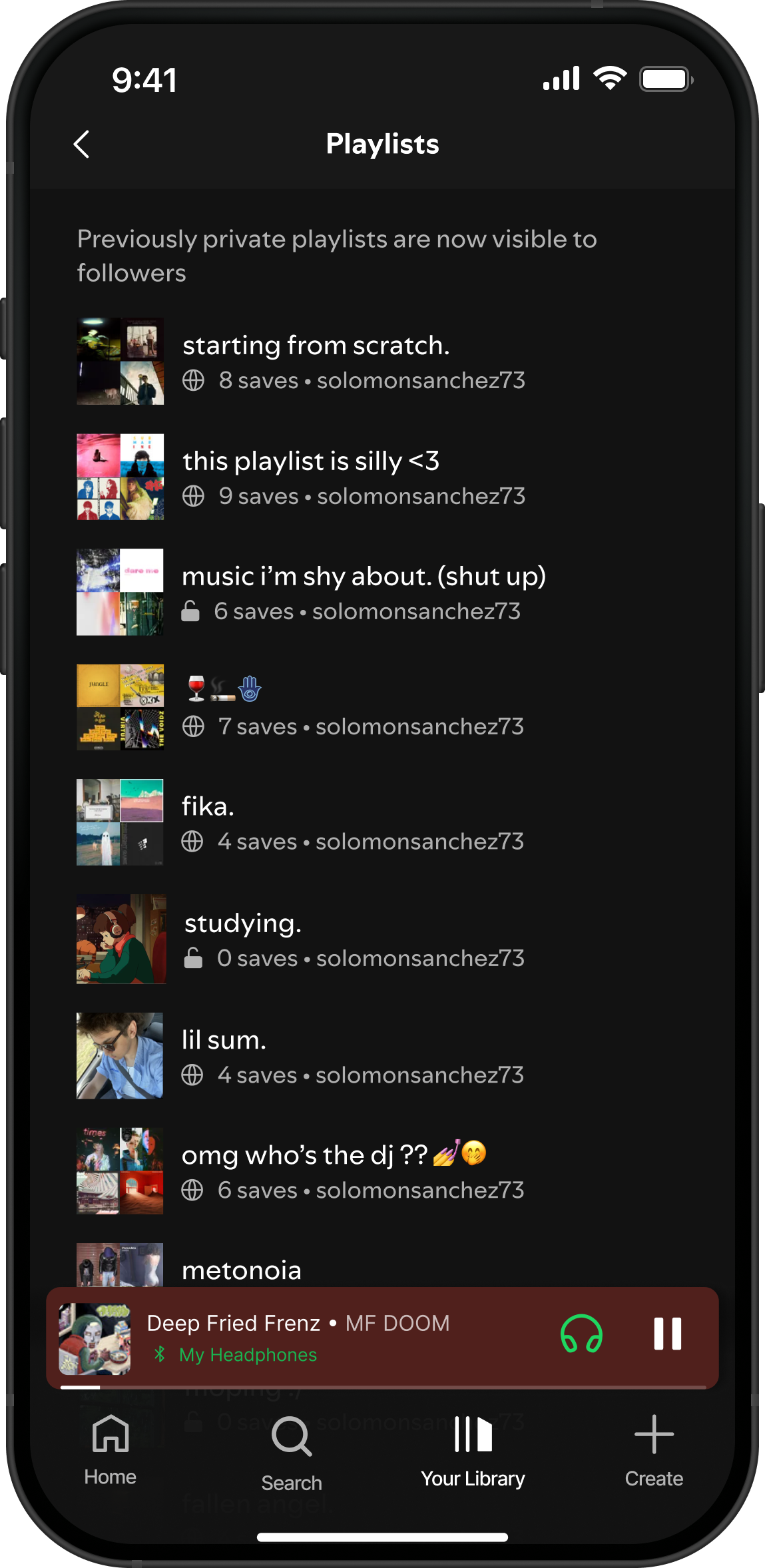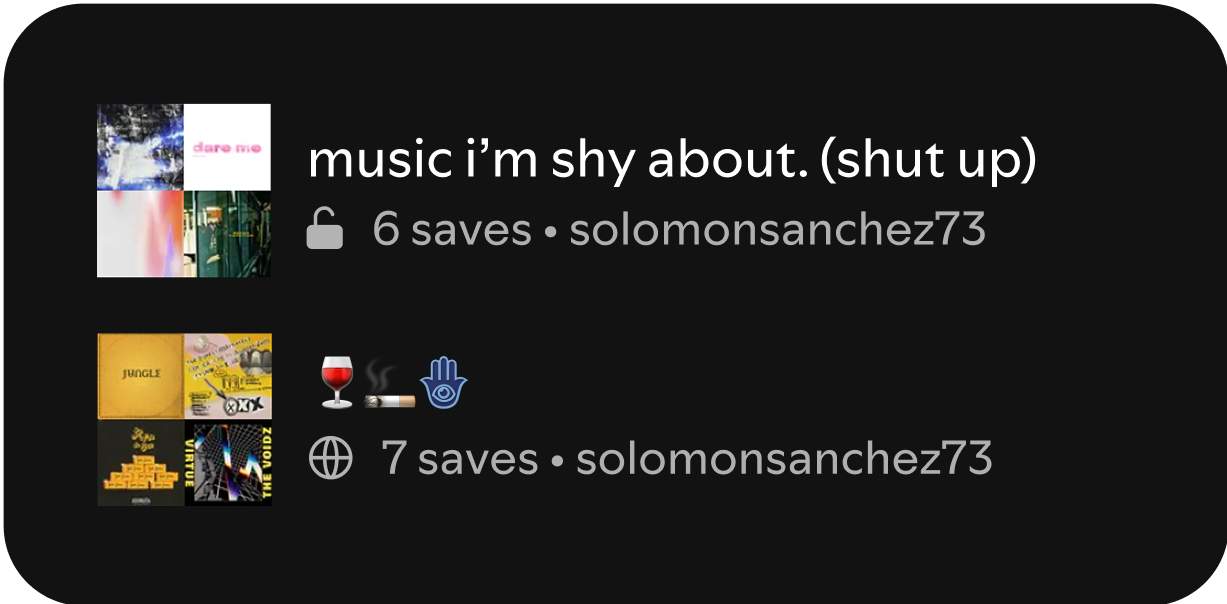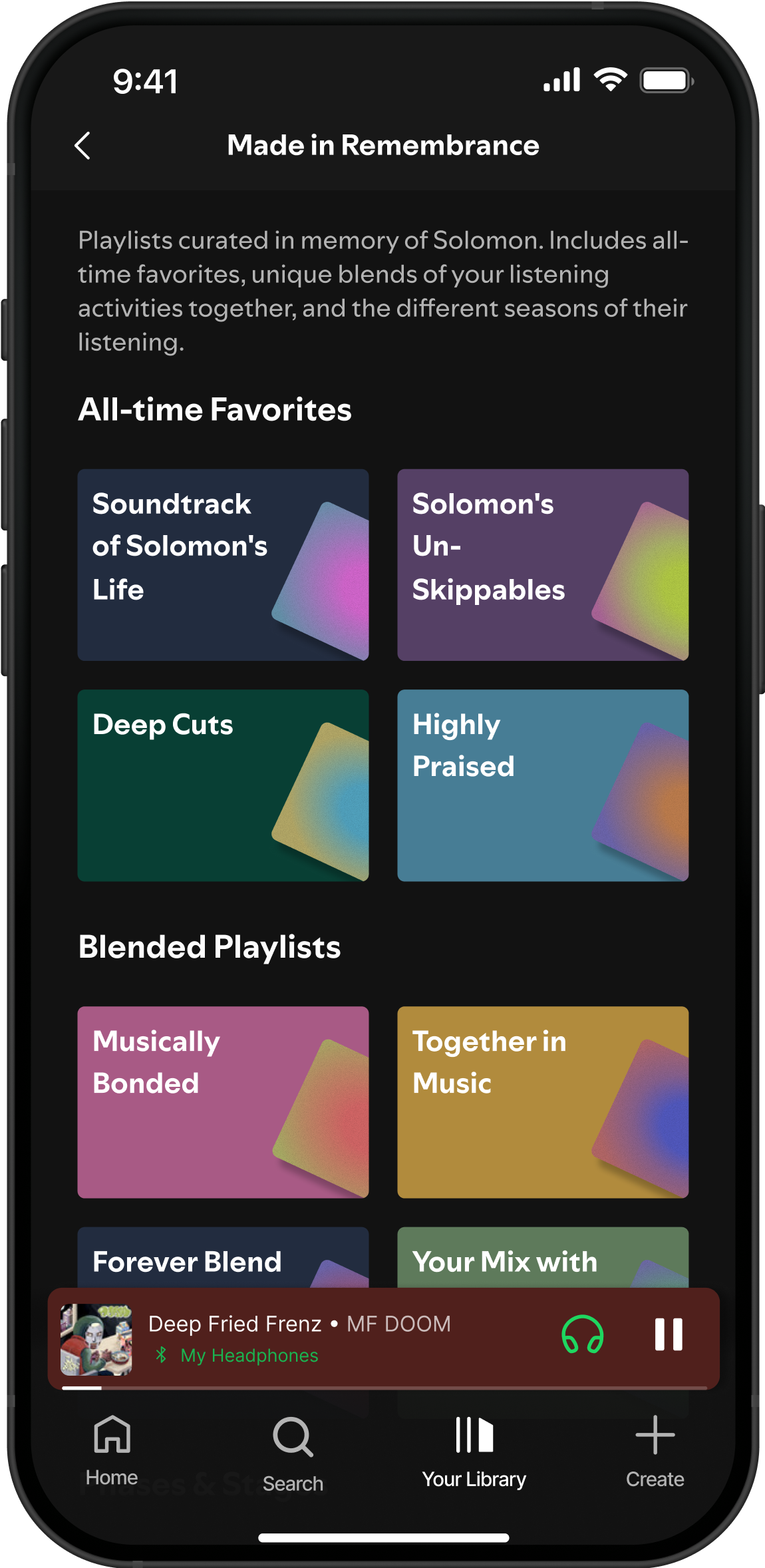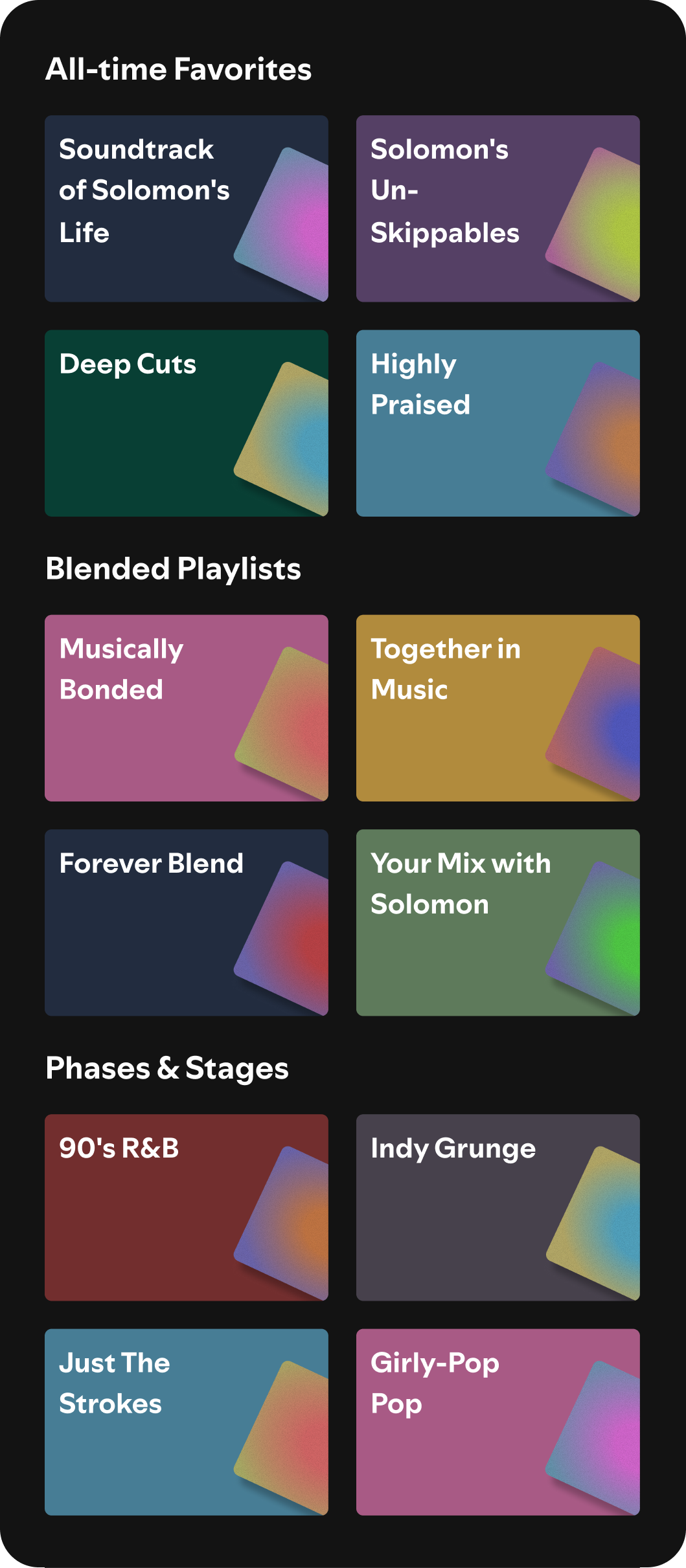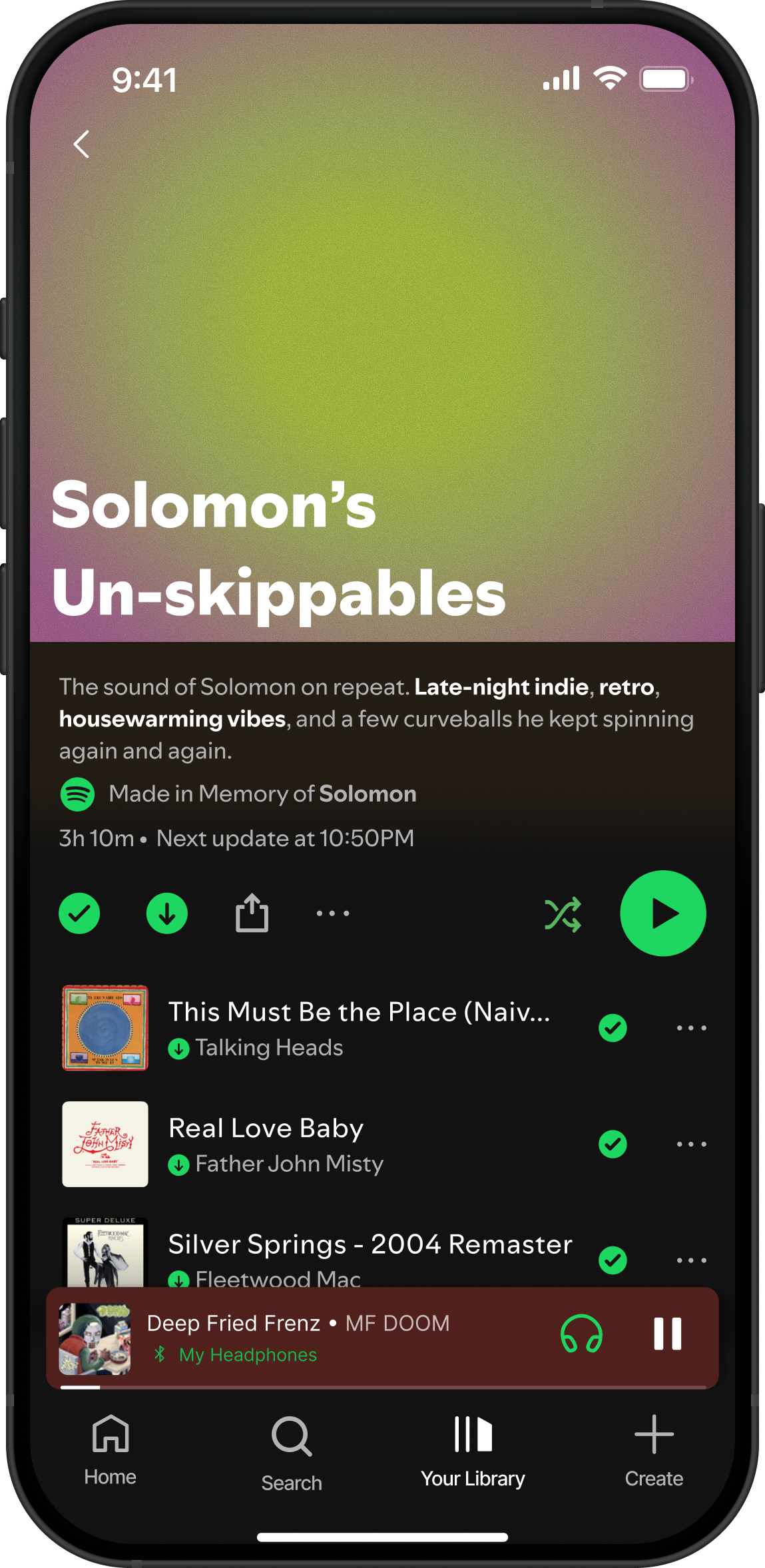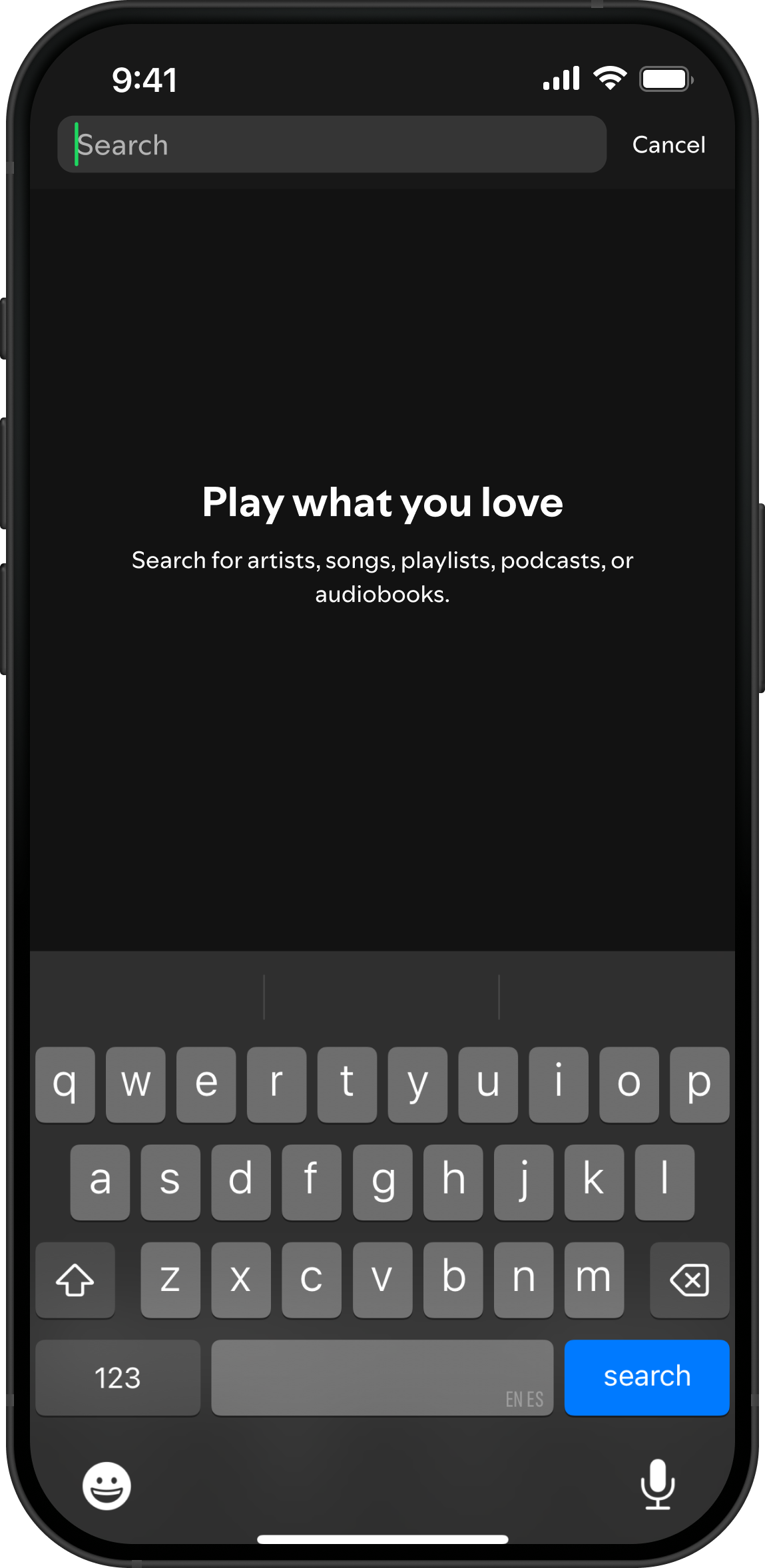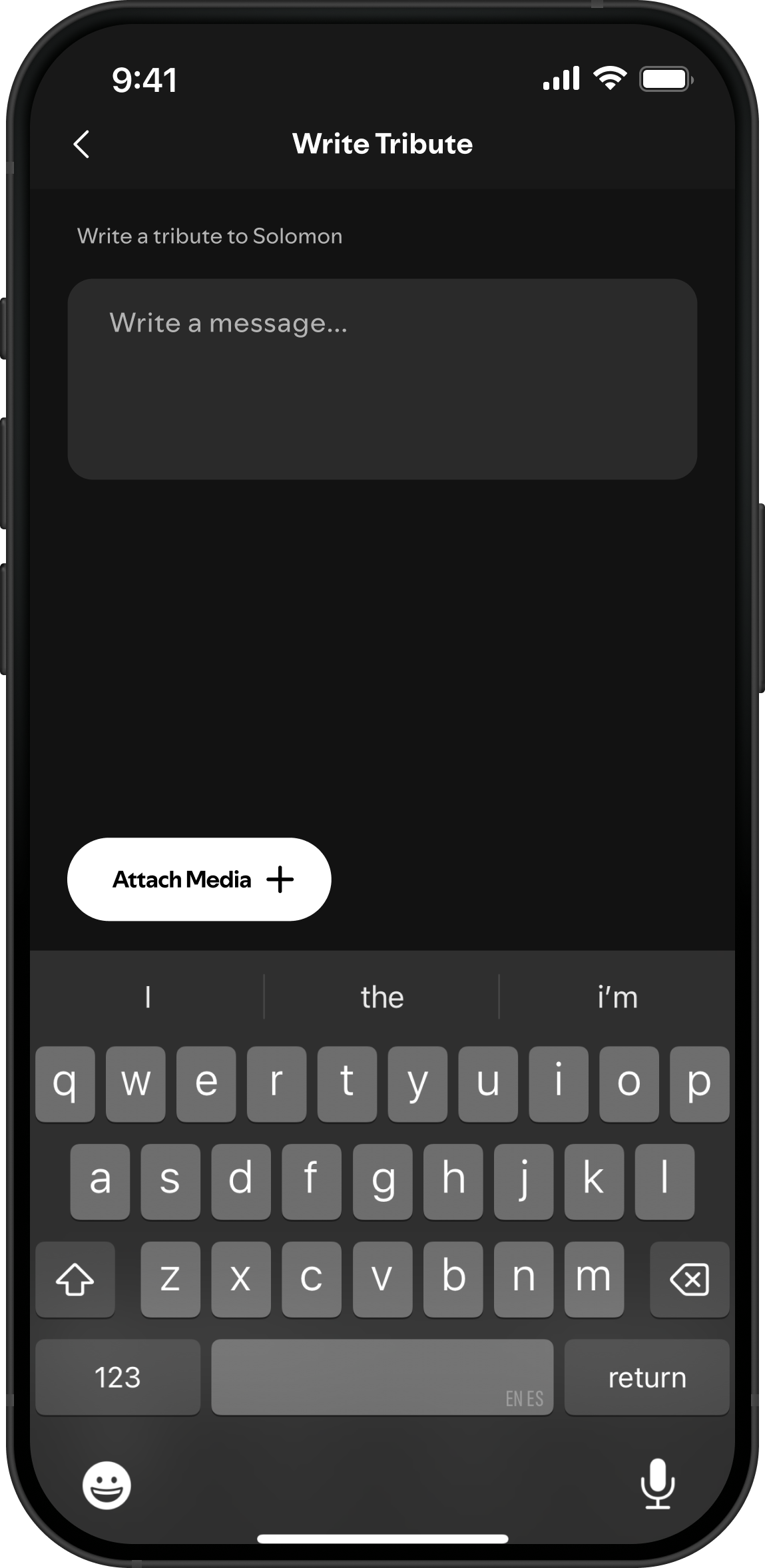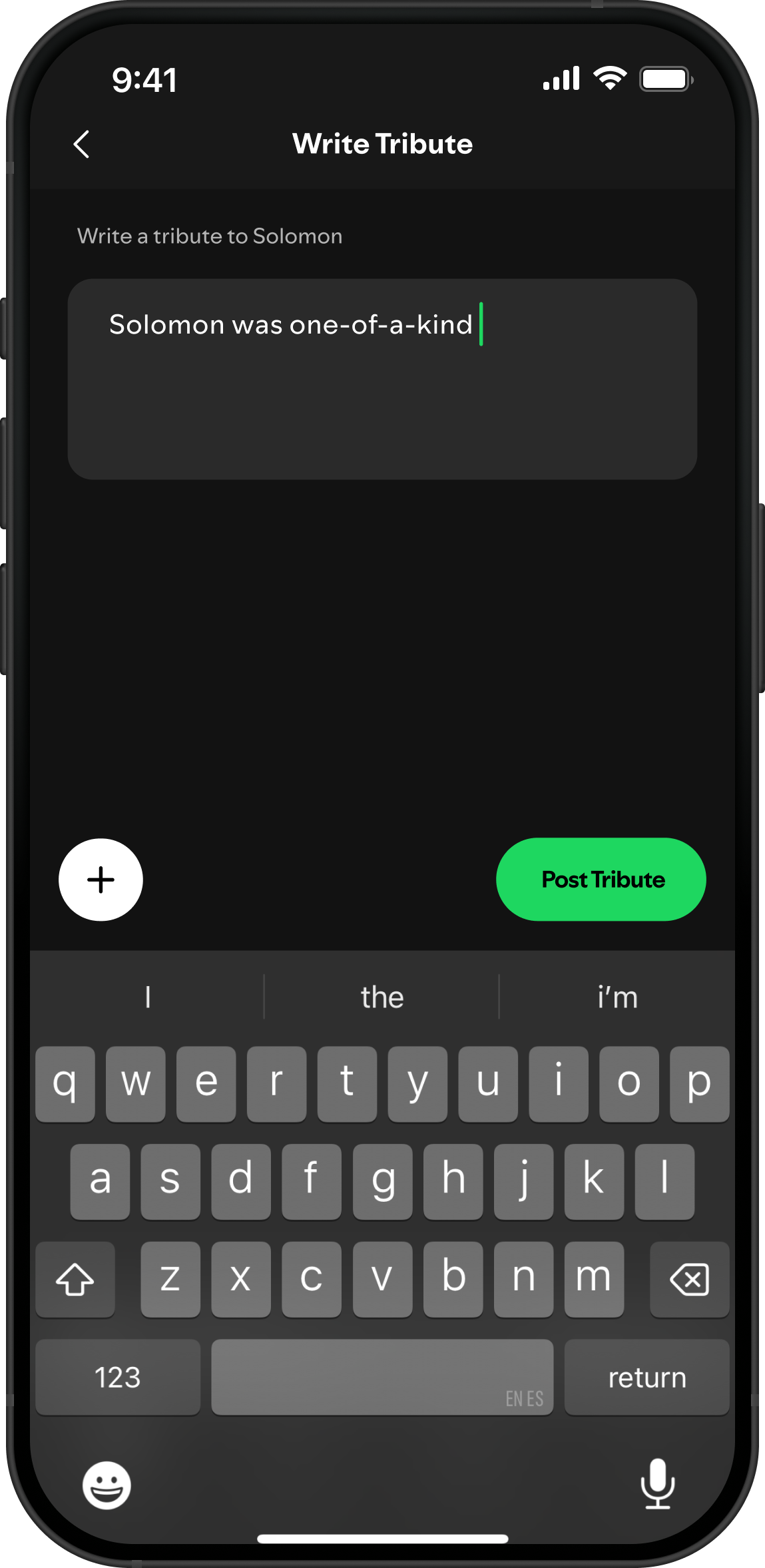
Spotify Memorialization
A self-initiated project exploring the intersection of music, memory, and loss
Tools
Figma
Context
Independent Concept Project
CONTEXTWhat is Memorialization?
Memorialization means to preserve the memory.
In social media, memorialization of accounts has been used to create a digital space to share memories and celebrate the life of someone who has passed.
Why Memorialization?
Early in 2025, my friend Solomon passed away unexpectedly. Solomon was deeply passionate about music and connected with so many people through it.
In processing my grief, I found myself listening to his Spotify playlists, and was surprised to see that Spotify didn’t have a memorialization feature. Turning this into a project gave me a creative outlet to channel my grief into.
This project has been a way to celebrate him while exploring how design can bring people comfort.
IN SUMMARYSpotify Memorialization
A request for memorialization can be submitted for Spotify users who have passed away. Once approved, followers of the deceased can visit the account and access new memorialization features.
Main features:
Posting tributes in memory of the deceased with optional media attachment (playlist, song, artist, etc.)
Loved ones may display a note on profile
Spotify-curated “Made in Remembrance” playlists
Includes option for users to view their “Blended” playlist with the deceased, which previously required both accounts to join
Privated playlists become visible
Inspiration & References
DESIGN PROCESSFacebook was notably the first social media to implement a memorialization feature into its platform. I took lots of inspiration from their concepts, and turned to other platforms’ take on memorialization, like Instagram.
I also referenced Spotify’s mobile UI for layout, typography, and iconography to maintain authenticity.
Wireframes
Big concepts I wanted to include on day 1 were:
Tributes
Statistics (this eventually evolved into “Spotify-curated playlists)
A memorialized profile view
Message from the family
Lighter icon: signifies appreciation and community in the music world
Trouble-shooting
The biggest problem I dealt with in this project was structure. I narrowed it down to 3 options:
Option 1
One scrollable page with all features
Issue: Too much clutter
Option 2
Separate page with memorialization features
Issue: How to get back and forth with visual appeal?
Option 3
One page for each feature
Issue: Veers too far from the original design
Scroll to see final screens, using a modified version of the Option 2 wireframe
All Screens & Features
New Remembering View
Loved one note displayed below profile
Previews of and navigation to:
Spotify-curated “Made in Remembrance” playlists
Tributes
Playlists View
Previously private playlists now visible to followers
Indicated by new unlock/ globe icons
Remembrance Pop-up
Appears on clicking “Remembering”
Features a new lighter icon
Tradition in music, symbolizes appreciation and unity
Made in Remembrance Playlists
Spotify-curated playlists that celebrate a listener’s musical history
Includes categories such as: All-time Favorites, Blended Playlists, and Phases and Stages
Tributes View
Followers may view and post tributes in honor of the deceased
Option to add media
Reflection
This project began from grief, but became a way to design through it. Losing Solomon made me think about how digital spaces could hold memory, and how design might support connection even after someone is gone.
Building these screens was personal. Every layout, color, and interaction carried the intention to honor someone who was kind, creative, and full of light. Translating that emotion into a product taught me how empathy can guide design choices just as much as data or user testing.
Future Steps
I plan to develop a “Loved One View” that will allow family or friends to request memorialization, manage visibility, and differentiate between public and follower access. I’d also like to explore how Spotify’s recommendation system could adapt for memorial accounts, surfacing songs that comfort or remind others of shared memories.
This project reminded me that design is most meaningful when it helps us hold onto what matters.
Got Feedback? Let me know!
I welcome all critique and criticism about my designs. There’s always room for growth. Use my anonymous submission box for any feedback you may have.
